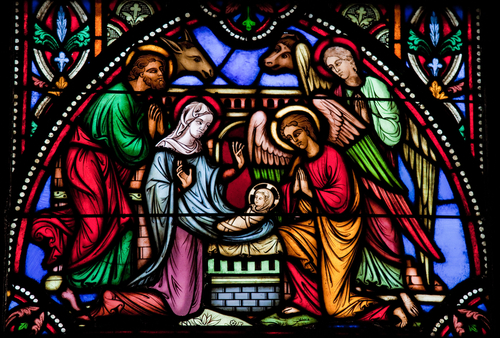It makes sense that if God can create something as profound as us in his image, only to have us mess it up by not being able to behave ourselves, that creations from such fallen creatures would likewise contain fundamental flaws. And whereas evidence of God’s handiwork in things like the birth of a child or any of the infinite wonders of nature causes us to hopefully pause in gratitude, when it comes to our inventions, especially popular culture ones, our endeavors can be quite peccable as well as misleading.
Take three popular movie and television tropes. The Western (albeit not as much now as then) had the misunderstood outlaw or the outlaw who was really trying to right an injustice. Jesse James wasn’t really a cold-blooded killer, he was upset that the railroad had displaced so many hard-working farmers.
Gangster movies, which undertook a great evolution, from the beginnings with Cagney and Bogart in the early 1930s to the Godfather epic and beyond, morphed that genre into sympathetic “good” bad guys.
And finally, we have pirates. It had been a long dormant genre, until the resurgence of the Pirates of the Caribbean franchise brought treasure chests filled with box office receipts to the Walt Disney Company. These pirates were comical, rakish yes, but a happy-go-lucky lot. Inserting magic and blood curses into the story line was sheer brilliance, as it allowed the characters to play it straight while still having a bit of a wink in the eye.
So, if all we know about gangsters and outlaws and pirates is what we see on television and on movie screens, we are not going to be enlightened. Entertained maybe, but not educated. You see, the problem is that most outlaws were just that. Men who lived outside the law because they liked it that way — same for gangsters, mafia dons, and pirates.
These (mostly) men lived lives unmoored to Christian ethics, and their real crimes and real lifestyles are not quite so romantic. But that’s how we like our popular culture. We want it both ways. We want to be titillated by the dangerous lives some of these real “types” lived but we want it tempered by some mitigating circumstances.
When all is said and done and written and filmed it probably doesn’t matter all that much. But for such a long time we have been applying the same popular culture bait and switch technique to the first Advent that we have come precariously close, at least to the least churched among us, of obliterating the truth of that first Christmas altogether.
Let’s look at the cold hard first century facts. How many quaint movies or TV specials do we see of a well-dressed Mary and Joseph (well dressed for first century standards at least) making their way to Bethlehem, with Mary astride a nice-looking donkey. Next time we usually see them they are staring calmly and lovingly down at a sleeping babe in a manger in a place that more resembles a KOA campground. Travel was hard in the first century. It was hard if you were in the one-tenth of the one percent who were rich. It was probably brutal if you were poor. Do you think Mary and Joseph were the only ones sleeping outside that night?
And that God invention of childbirth is a difficult time for any first-time mom in any era, but imagine if you were carrying the knowledge that Mary carried, and you were cold and dirty and you couldn’t find even one local Bethlehem dump to have your baby out of the elements. All we seem to want from the Nativity in popular culture is the sweet sound of a baby cooing. Since Jesus was all man and all God, he was all baby, and probably cried for his food and cried because he was cold and Mary and Joseph, as all first-time parents do, probably looked at each other and said, “Now what?”
There is a reason we see so much purple in Church during Advent, and it’s a good reason. It is keeping with the real “spirit” of the season. A child is born into the world for the explicit reason to be rejected and crucified and sacrificed for our sins. It is right to joyfully celebrate the birth of a savior and the purity of the Holy Family, but the sanitized popular culture version of the true story will never come close to the real thing.
Merry Christmas.
Robert Brennan is a weekly columnist for Angelus online and in print. He has written for many Catholic publications, including National Catholic Register and Our Sunday Visitor. He spent 25 years as a television writer, and is currently the Director of Communications for the Salvation Army California South Division.
Start your day with Always Forward, our award-winning e-newsletter. Get this smart, handpicked selection of the day’s top news, analysis, and opinion, delivered to your inbox. Sign up absolutely free today!

